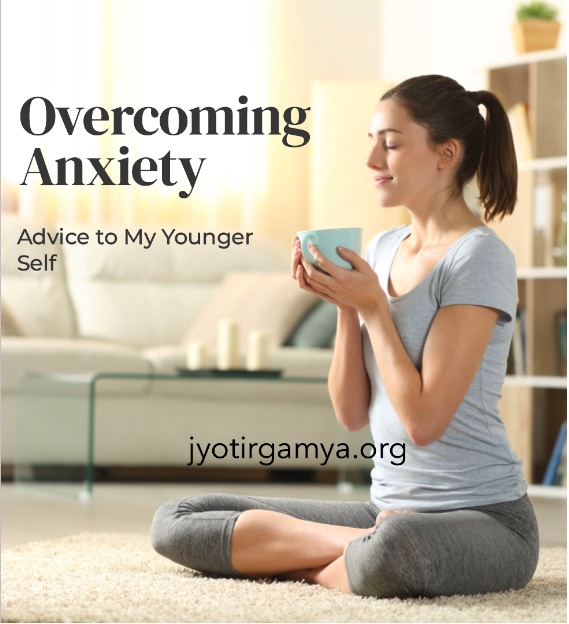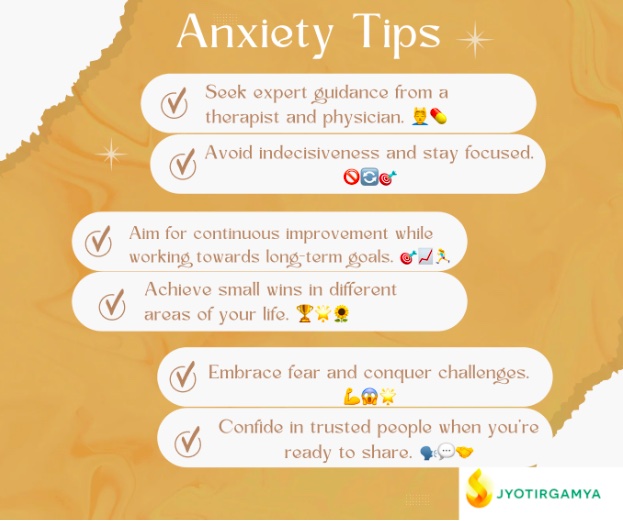Overcoming Anxiety: Advice to My Younger Self
According to the World Health Organization (WHO), anxiety disorders are the most common mental disorders worldwide, with an estimated 264 million people affected.
In the United States, anxiety disorders affect 40 million adults, or 18.1% of the population, each year.
Women are more likely than men to experience anxiety disorders, with a lifetime prevalence of 30.5% compared to 19.2% for men.
Anxiety disorders often co-occur with other mental health conditions, such as depression, substance abuse, and eating disorders.
However, despite the prevalence of anxiety disorders, only about one-third of people with these conditions receive adequate treatment.
In this issue, the executive director of a Fortune 50 corporation discusses her experience with anxiety and depression.
More than her professional achievements, she is most proud that despite her difficulties with learning, she has earned two graduate degrees. Despite her social phobia, she has traveled alone to over 50 countries.
No personal information is being published due to privacy considerations.

I want to speak to you directly from a place of profound and extensive personal experience in the hope that a few things that worked for me would connect with you and assist you on your journey.
I used to suffer from crippling social anxiety and depression, which started in my early teens and continued until I was in my early thirties. I couldn’t leave the house at its worst.
In general, I was able to deal with critical aspects of my life, such as school or employment, by eliminating any unstructured time that exposed me to situations that brought me grief.
I would arrive at school/work at the last possible moment and leave as soon as feasible.
Looking back, I was in survival mode - I had no idea what was happening to me (extreme anxiety). When I had to speak in front of a group, I felt like I was drowning, the schoolyard felt like a firing line, and even walking to the grocery store was uncomfortable. This was a highly confidential source of pain and shame for most of my life.
If I could go back in time, here’s what I’d tell my younger self, in roughly this chronological order:
1. Seek the advice and viewpoints of a competent therapist and your physician
This can help you better understand what is happening and broaden the range of healthy coping strategies available. Understanding oneself is a lifelong adventure that we all confront; having a trusted and experienced advisor(s) by your side can exponentially increase your self-awareness.
After all, the most excellent method to fix a problem is first to have a grasp of what the problem is.
2. Steer clear of the double-edged sword
The first edge represents social anxiety, while the second represents negative sentiments about yourself for experiencing anxiety and/or how you handled a given circumstance.
One of my most significant life improvements was to stop judging myself negatively for feeling uncomfortable in social situations. It enabled me to feel the anxiety and deal with it alone.
I didn’t need to add subjective judgments about what those feelings did or did not imply about me.
The terrible and uncomfortable feelings persisted, but at least I wasn’t complicating and complicating the matter.
3. Build small wins in as many adjacent areas of your life as possible
Social anxiety can lower your self-esteem, making your world smaller and more limited.
I discovered that focusing effort on performance areas where my social anxiety was not a limiting factor might offset and even reverse this. It was team sports for me - I understood the rules, was good at them, and used positive reinforcement and acceptance from my peers to make small gains in areas where I used to feel anxious; for example, it provided me with a structure and support system that I felt safe within, so stepping outside of that became less risky.
The school became a source of pride and accomplishment from which I could draw. The idea is to find something that you both enjoy and can excel at and to do so in a way that brings you into more significant contact with others while maximizing positive sentiments and interactions.
As a side note, relying on success in a particular area for self-esteem might leave you vulnerable to crashes if your performance falters because your self-worth becomes contingent, e.g., I have worth. After all, I am a good (athlete/scholar/artist/musician/etc).
This can be mitigated by constantly focusing on broadening the breadth and magnitude of your minor victories - it boosts your chances of developing a more stable feeling of self-worth and, honestly, leads to a more fulfilling life.
4. Balance the long view with a daily commitment to improvement
I’ve been through several phases of severe misery and self-loathing in which, despite external accomplishments, I was suffering on the inside.
I got through it by realizing that, while I couldn’t change the immediate situation (e.g., relieve myself of worry), I could make investments in myself that would increase my chances of a better life in the future. I repeatedly told myself, “Just one more day is all you need.” Day after day, I concentrated on getting through the next one, always hoping my sacrifices would result in a better life.
5. Be prepared to do things that scare you
This one is difficult yet vital. It does not imply putting oneself in danger or taking unwarranted risks. Accepting difficult jobs or undertakings in which success is conceivable but not assured.
This began with working my absolute hardest to accomplish my undergraduate degree despite having a challenging experience at university. The next game involved attending graduate school in a new city. Following that, I completed an internship with an international organization in a place where I needed help understanding the language. I traveled alone to a distant country with no set itinerary or activities.
6. When you are ready, open up to people you trust
I masked my social anxiety from the people I loved and cared about, which made maintaining intimate connections challenging. I am grateful that I dared to open up to people about what I was going through and how it affected my life. It made it so much easier for me to be myself, and it helped to alleviate the embarrassment I felt about having it in the first place. You must be cautious about this step since the incorrect person(s) will exploit it.
That’s why I started seeing a therapist - it gives you a solid starting point and a better idea of what you want to keep private and what you think would be beneficial to share with others.
The advice I gave above has served me well in many ways. I still struggle occasionally and must return to the advice above to continue learning and improve my life.

Conclusion
There is a significant body of literature on the effectiveness of cognitive and relaxation techniques in reducing anxiety. For instance, studies have shown that cognitive-behavioral therapy (CBT) effectively treats anxiety disorders, including generalized anxiety disorder, panic disorder, and social anxiety disorder. CBT is a form of psychotherapy that focuses on identifying and changing negative thought patterns and behaviors contributing to anxiety.
Moreover, relaxation techniques such as mindfulness meditation, progressive muscle relaxation, and deep breathing effectively reduce anxiety symptoms. Studies have shown that practicing these techniques regularly can lower levels of the stress hormone cortisol and increase feelings of calm and well-being.
In conclusion, social anxiety and depression can be incredibly challenging, but some strategies and resources can help. Seeking the advice and viewpoints of a competent therapist and your physician, avoiding negative self-judgment, building small wins in adjacent areas of your life, balancing the long view with a daily commitment to improvement, doing things that scare you, and opening up to people you trust are all steps that can assist you in overcoming social anxiety and depression. Remember that everyone’s journey is unique, with no one-size-fits-all solution. Still, it is essential to know that there is hope and it is possible to live a fulfilling life despite these challenges.
Related Articles:
Integral Somatic Psychology : New Approach to Anxiety Management
Urge to Control is the Mother of Anxiety
Social Anxiety Disorder Treatment
Ten Strategies to Cope with Anxiety
If you think someone would benefit from the article, please do share it with them.
Want to stay connected? Here’s our twitter.